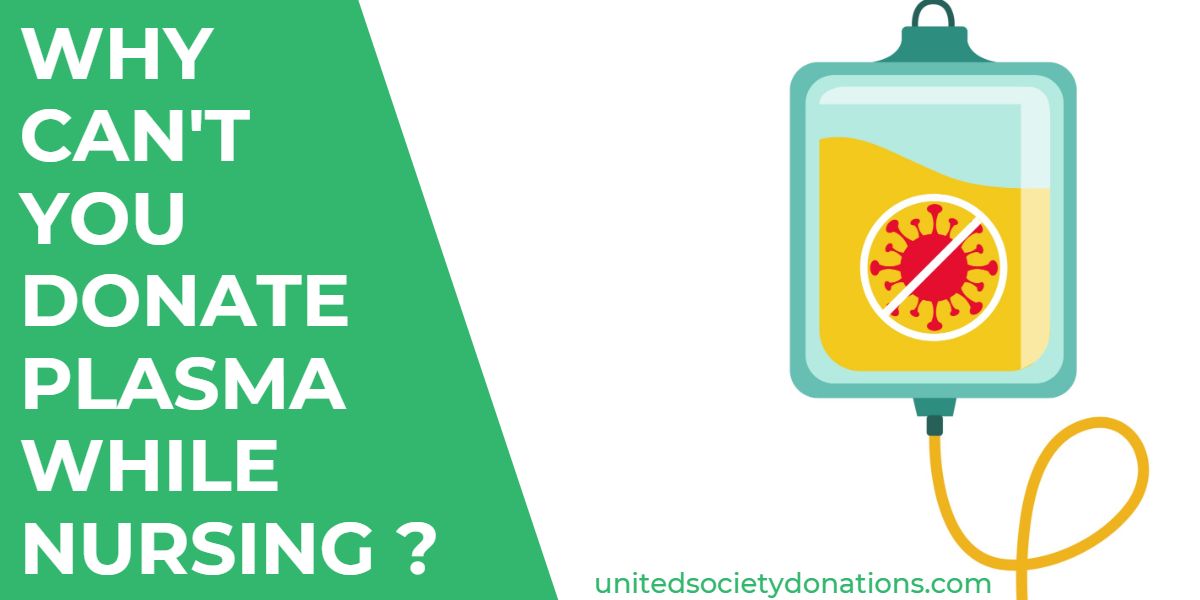
As a nursing mother, you may be wondering if it is possible to donate plasma while continuing to provide vital nutrients to your baby.
Plasma donation can be a great way to help others in need and earn some extra money, but it is important to ensure that it is safe for both you and your baby.
In this article, we will answer the question Can You Donate Plasma While Nursing? We would also explore the potential risks and benefits of donating plasma while nursing, and provide recommendations from medical professionals on the best course of action.
Can You Donate Plasma While Nursing?
It is generally not recommended for nursing mothers to donate plasma. Plasma donation can potentially affect the quality and quantity of breast milk and may pose risks to the nursing mother and baby. It is best to consult with a medical professional before donating plasma while nursing.
If you are still interested, check out this article to know How Much Does Immunotek Pay for Plasma Donation?
Why Can’t You Donate Plasma While Nursing?

There are several reasons why it is generally not recommended for nursing mothers to donate plasma:
1. Plasma Donation Can Potentially Affect the Quality and Quantity of Breast Milk
The process of donating plasma can temporarily reduce the body’s production of various hormones and proteins, including those involved in lactation. This can potentially lead to a decrease in the amount and quality of breast milk.
2. Plasma Donation Can Cause Dehydration and Other Side Effects
The process of donating plasma involves removing a certain amount of blood from the body and replacing it with a plasma substitute.
This can lead to dehydration and other side effects, such as dizziness, nausea, and fatigue. These side effects can potentially affect a nursing mother’s ability to care for her baby.
3. Plasma Donation May Pose Risks to The Nursing Mother and Baby
There is a small risk of infection and other complications associated with any type of blood donation, including plasma donation.
This risk may be slightly higher for nursing mothers, who may have a weakened immune system due to the stresses of childbirth and breastfeeding.
There are alternative options for nursing mothers who want to donate. Nursing mothers can donate plasma before or after they finish nursing, or they can help in other ways in the plasma donation process, such as by providing support and encouragement to other donors.
Potential Risks to The Nursing Mother and Baby if She Donates Plasma
There are several potential risks to the nursing mother and baby if she donates plasma, including:
1. Decreased Quality and Quantity of Breast Milk
As mentioned above, the process of donating plasma can temporarily reduce the body’s production of various hormones and proteins, including those involved in lactation. This can potentially lead to a decrease in the amount and quality of breast milk, which can affect the baby’s health and development.
2. Dehydration and Other Side Effects
The process of donating plasma can cause dehydration and other side effects, such as dizziness, nausea, and fatigue. These side effects can affect a nursing mother’s ability to care for her baby and may make it difficult for her to breastfeed.
3. Risk of Infection and Other Complications
There is a small risk of infection and other complications associated with any type of blood donation, including plasma donation. This risk may be slightly higher for nursing mothers, who may have a weakened immune system due to the stresses of childbirth and breastfeeding.
4. Reduced Ability to Care for The Baby
The combination of the potential effects on breast milk quality and quantity, side effects from the donation process, and the risk of infection can all potentially reduce a nursing mother’s ability to care for her baby. This can lead to increased stress and anxiety for both the mother and the baby.
Time Gap Required
It is generally recommended that nursing mothers wait at least 48 hours between donating plasma and breastfeeding their baby. This allows time for the body to recover from the plasma donation and for the quality and quantity of breast milk to return to normal.
It is also important for nursing mothers to stay hydrated and listen to their bodies to ensure that they are feeling well enough to care for their babies.
You may also want to read this article on Can You Donate Plasma if You Take Adderall?
FAQs on Can You Donate Plasma While Nursing?
These are the frequently asked questions on Can You Donate Plasma While Nursing:
How long should I wait after nursing before donating plasma?
It’s recommended to wait until you have completely weaned your baby before considering plasma donation.
Are there alternative ways to support plasma donation efforts while nursing?
While donating plasma directly may not be advisable while nursing, there are other ways to support plasma donation efforts, such as raising awareness, encouraging others to donate, or volunteering at donation centers.
Conclusion for Can You Donate Plasma While Nursing?
In conclusion, while donating plasma can be a great way to help others in need and earn some extra money, it is generally not recommended for nursing mothers.
The process of donating plasma can potentially affect the quality and quantity of breast milk and may pose risks to the nursing mother and baby.
It is important for nursing mothers to consult with a medical professional before donating plasma, and to consider alternative options, such as donating before or after nursing or helping in other ways in the plasma donation process.
By taking these precautions, nursing mothers can ensure that they are making safe and healthy choices for both themselves and their babies.
I hope that I have now answered your question about Can You Donate Plasma While Nursing?

